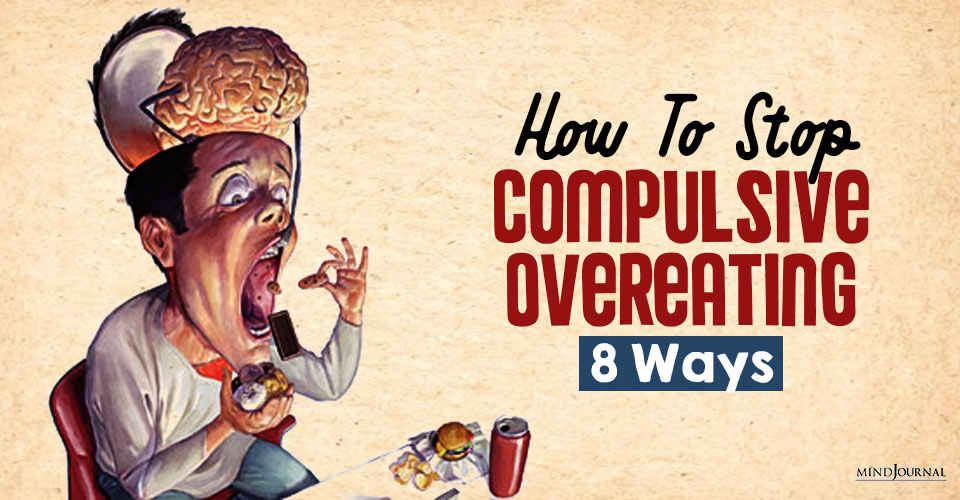Emotional eating, such as eating due to anxiety or happiness, can sabotage your weight-loss efforts. Find out how to stop overeating habits of yours.
The Energy of Food: A Missing Piece to Overeating and Weight Loss
As a psychiatrist, I know that there is more to overeating and obesity than meets the eye. Genetics play a role, as do hormonal and psychological triggers. However, one big reason why diets fail is that traditional weight-loss programs don’t factor in how we process energy.
Sensitive people, whom I call emotional empaths in my book “Emotional Freedom,” unknowingly overeat in response to being overwhelmed by stress, anxiety, or negativity. Empaths are extremely sensitive and become an emotional sponge for the stress of the world — they absorb it into their bodies.
If this is you, the following information will be helpful. (To find out if you are an empath, take the “empath quiz” in my companion blog, “Are You An Emotional Empath?“)
Here’s the energetic theory of obesity: When empaths are thin, they have less padding, are more vulnerable to absorbing stress. Early-twentieth-century faith healers were renowned for being grossly obese to avoid taking on their patients’ symptoms, a common trap I’ve seen modern healing practitioners also unconsciously fall into; food is a grounding device.
Similarly, many of my patients gain weight to protect against stress at home or at work. Energy is at the root of an empath’s hunger. Try these strategies from my book “Positive Energy“ to cope with the energy of stress without abusing food.

How to Stop Overeating Compulses
Interventions to halt energetic eating when the impulse to overeat hits
1. Discern addictive craving from a true need.
Addictive craving, a symptom of nutritional abuse, is a frequent response to energetic overload. Here, you eat certain foods addictively; this leads to obesity. Whenever you keep lusting after sweets and carbs, be suspicious. With cravings, you eat to relieve stress, not to build energy. Try to identify addictive foods and limit them.
With a true nutritional need, there’s no lusting after food to guard against stress. A true need comes from a centered place, not from self-medicating emotions with comfort foods or obsession. Feeling healthily nurtured from food never involves mood swings — sedation or elation — but rather an even feeling of satisfaction. A true need lets you enjoy your meal optimizes energy and doesn’t lead to obesity.
2. Quickly pinpoint energetic triggers of addictive cravings.
Immediately ask yourself: “Was I exposed to stress?” It could have been an obnoxious neighbor or phone message from your mother. Don’t write off the “smaller” incidents, which notoriously send empaths motoring to the refrigerator. Don’t panic. Pinpoint cause and effect. Clear it quickly once you’ve been slimed.
3. Breathe stress out of your system.
Take a five-minute break for damage control. Slowly inhale and exhale. Breath activates your calming endorphins (natural painkillers) and releases stress from the body.
Practice this visualization: Just as your lungs take in oxygen and expel toxic carbon dioxide, breathe in peacefulness and clarity, breathe out stress. Breathe in vitality. Breathe out fear. Repeat this exercise until you feel calmer.
4. Try a three-minute meditation.
Another way to calm yourself before you run to the refrigerator is with a three-minute meditation. I recommend keeping a meditation cushion in front of the refrigerator to remind yourself to meditate before opening the door.
5. Set healthy limits and boundaries.
With stressful people, limit the time you spend listening to them, and learn how to say “no.” Remember, “no” is a complete sentence.
Read: How Healthy Boundaries Help Protect Your Personal Space
6. Take a bath or shower.
A speedy way to dissolve stress is to immerse yourself in water. My tub is my refuge after a busy day; it washes away everything from bus exhaust to long hours of air travel to personal unpleasantness.
7. Eat with attunement.
Develop a diet that satisfies your energetic needs. Let energy motivate why you eat; it’s more important than taste or dietary dogma. Whatever you put in your mouth that is healthy, run it by your energy meter; see what truly nourishes or depletes.
For instance, does the chicken give you more energy than fish? Tomatoes more than carrots? You must test out foods in your body. Even foods you’ve shunned become more attractive when you experience their energy lift.
8. Visualize a protective barrier around yourself.
Research has shown that visualization is a potentially healing mind/body technique.
Food is no place to be passive. The interventions I’m recommending in this blog will allow you to take an active stance in eating healthfully. You don’t have to let stress lodge itself in you. To stay on top of your eating, do a daily check-in. Stay alert for cravings prompted by energetic triggers. Watch your responses. I promise, your eating habits will change.
Written By: Judith Orloff, MD
Originally Appeared On: Dr. Judith Orloff










Leave a Reply